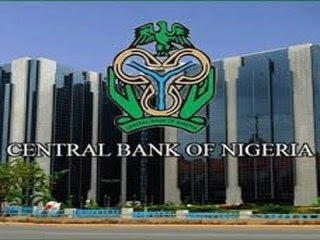The Central Bank of Nigeria (CBN) has unveiled plans to create trust fund for bank customers’ accounts that had remained dormant for up to 10 years and above with unclaimed balances for the purpose of warehousing unclaimed balances in eligible accounts.
The apex bank, in its ‘Exposure Draft of Guidelines on the Management of Dormant Accounts, Unclaimed Balances and Other Financial Assets in Banks and Other Financial Institutions in Nigeria’ indicated that such funds would thereafter be invested in government securities and returned to the beneficiaries not later than 10 days of notice.
In a circular signed its Director, Financial Policy and Regulation Department, Mr. Chibuzor Efobi, the CBN stated that the latest guidelines repealed its October 7, 2015 ‘Guidelines on the Management of Dormant Accounts and Other Unclaimed Balances by Banks and Other Financial Institutions in Nigeria.’
The circular stated in part: “The Central Bank of Nigeria shall open and maintain an account earmarked for the purpose of warehousing unclaimed balances in eligible accounts. The account shall be called ‘Unclaimed Balances Trust Fund Pool Account’.”
It listed the eligible accounts and financial assets to include Current, Savings and Term deposits in local currency; Domiciliary accounts; Deposits towards the purchase of shares and Mutual Investments; Prepaid card accounts and wallets; Proceeds of uncleared and unpresented financial instruments belonging to customers or non-customers of FIs; Unclaimed salaries and wages, commissions, and bonuses.
Others are, Proceeds of stale local and/or foreign currency drafts not presented for payment by beneficiaries; Funds received from a correspondent bank without sufficient details as to the rightful beneficiary and/or a recall of funds made to the remitting bank to which the Nigerian bank’s account had not been debited, and A judgment debt for which the judgment creditor has not claimed the amount of judgment award.
According to the circular, financial institutions shall treat accounts and financial assets that have become dormant by formulating policies for the recognition and management of dormant accounts and financial assets that are consistent with this guideline and other extant regulations; and establishing effective controls to ensure surveillance and second-level authorization on reactivation of dormant accounts, among other measures.
Also, the circular mandates the financial institutions to maintain a register of dormant accounts balances; transfer balances that have remained in the dormant account register for up to ten years to the ‘UBTF Pool Account; and, require customers seeking to reactivate dormant accounts to provide evidence of account ownership, valid means of identification, evidence of the present place of residence, and affidavit on the accuracy of the information to reactivate the account.
The CBN cautioned that any bank or financial institution that contravenes any provision of the new guidelines will pay a penalty of not less than N2 million and that failure to comply with this directive in respect of any infraction would attract a further penalty of N200,000 daily until the directive is complied with or as may be determined by CBN. N200,000 daily.
The circular further stated that when it receives the unclaimed balances, the CBN will open and maintain the ‘Unclaimed Balances Trust Fund Pool Account’; maintain records of the beneficiaries of the unclaimed balances warehoused in the UBTF Pool Account; and invest the funds in Nigerian Treasury Bills (NTBs) and other securities as may be approved by the ‘Unclaimed Balances Management Committee’.
In addition, the apex bank shall refund the unclaimed funds to the beneficiaries not later than 10 working days from the date of receipt of the request; and, where it is imperative to extend the timeline, a notice of extension shall be communicated to the requesting FI stating reasons for the extension.
The CBN explained that the objectives of the guidelines are to “Identify dormant accounts/unclaimed balances and financial assets with a view to reuniting them with their beneficial owners; hold the funds in trust for the beneficial owners; standardise the management of dormant accounts/unclaimed balances and financial assets; and establish a standard procedure for reclaim of warehoused funds.”
It also promised to publish an annual list of the owners of the unclaimed balances that had been transferred to the pool account as well as the procedure for reclaim of warehoused funds.






